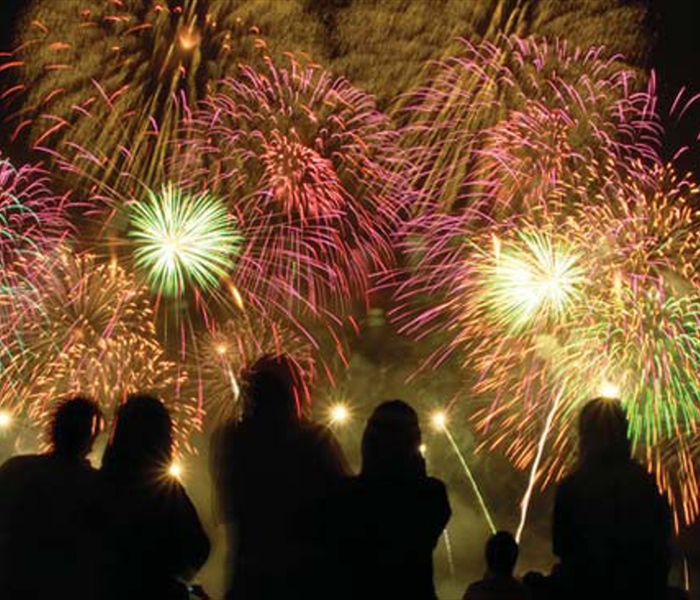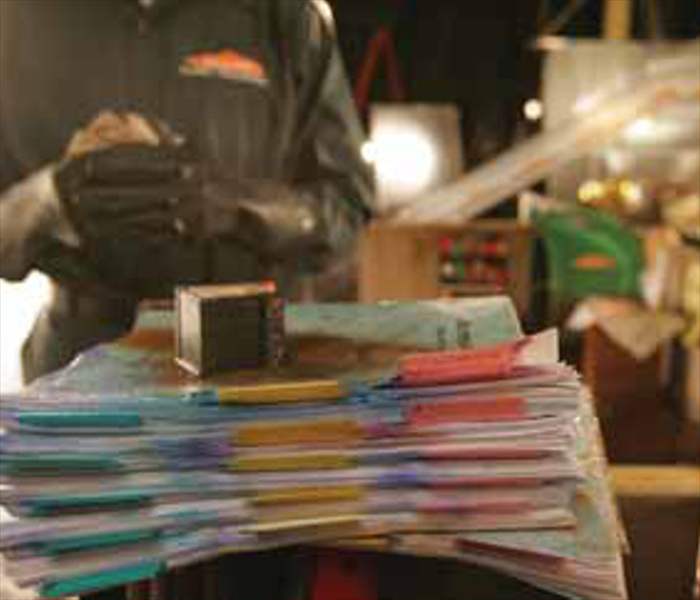Recent Community Posts
EXTREME HEAT SAFETY!
6/2/2017 (Permalink)
 Extreme Heat Safety
Extreme Heat Safety
DID YOU KNOW?
On average, heat is the number one weather related killer in the United States.
Source: National Weather Service, nws.noaa.gov
As summer approaches, it is time to consider safety precautions for extreme heat in the coming months. Heat affects all people, but especially the young, elderly, sick, and overweight. Urban area residents also have a greater chance of being affected than those who live in rural areas due to the heat island effect.
According to the EPA, “the sun can heat dry, exposed urban surfaces, such as roofs and pavement, to temperatures 50–90°F hotter than the air, while shaded or moist surfaces—often in more rural surroundings—remain close to air temperatures.” These surface heat islands are strongest during the day when the sun is shining, while the atmospheric heat islands are more likely after sunset “due to the slow release of heat from urban infrastructure.”
Whether you are in an urban or rural area, there are several things you can do to prepare for and prevent extreme heat from affecting you. If possible, stay indoors in air conditioning. Be sure to check on your pets who may be outdoors or bring them inside. Stay hydrated and limit alcohol and caffeine intake.
If you must go outside, wear loose-fitting, light colored clothing, and be sure to apply sunscreen often. Pay attention to signs of heat exhaustion, which are heavy sweating; weakness; cold, pale, and clammy skin; nausea or vomiting; and fainting, according to the Center for Disease Control and Prevention (CDC). Heat exhaustion can lead to heat stroke, which is life-threatening. Signs of heat stroke are a high body temperature (103°+), rapid and strong pulse, and possible unconsciousness.
If you think someone has heat stroke, call 911 immediately and move the person somewhere cool. Reduce body temperature with cool, wet cloths or a bath. Do not give a person with heat stroke fluids, and treat the situation as a serious medical emergency (CDC). If you live in a humid climate, be aware of the heat index. The heat index factors in the humidity, which can make the temperature feel 15° hotter.
Extreme heat is a serious danger. For more information on preparation and prevention, visit ready.gov or cdc.gov.
Contact us at 973-546-4977 if you have a service need or click SERVPRO websiteto visit our website to learn more about SERVPRO of Wayne's System Services.
Like Us on Facebook or Follow us on Twitter, Google+ or Instagram and follow the tips, tricks and advice we share with our community.
Do You Have A Plan?
9/2/2016 (Permalink)
As a member of the Ready Campaign’s National Preparedness Coalition, SERVPRO® is proud to present the
following information.
How quickly your company can get back to business after a tornado, fire, or flood often depends on the emergency planning done today. The regular occurrence of natural disasters demonstrates the importance of being prepared for any emergency. While each situation is unique, your organization can be better prepared if you plan carefully, put emergency procedures in place, and practice for all kinds of emergencies. The following are basic measures business owners and managers can take to begin preparing. A commitment to begin planning today will help support your employees, customers, the community, local economy, and even the country. It also protects your business investment and gives your company a better chance for survival.
Develop a Business Continuity Plan.
Your organization’s risk needs will vary depending on the specific industry, size, scope and location. Begin by reviewing your business process flow chart, if one exists, to identify operations critical to survival and recovery. Carefully assess your internal and external functions to determine which staff, materials, procedures and equipment are absolutely necessary to keep the business operating. You should also establish procedures for succession of management.
Review Insurance Coverage.
Inadequate insurance coverage can lead to major financial loss if your business is damaged, destroyed or simply interrupted for a period of time. Insurance policies vary; check with your agent or provider about things such as physical losses, flood coverage and business interruption.
Understand what your policy does and does not cover.
Prepare your Emergency Plan.
Your employees and co-workers are your business’ most valuable asset. Communication is central before, during and after a disaster. Include emergency information in newsletters, on your company intranet, in periodic employee e-mails and/or other communication tools.
Practice the Emergency Plan.
Some disasters will require employees to leave the workplace quickly. The ability to evacuate workers, customers and visitors effectively can save lives. If your business operates out of more than one location, establish evacuation procedures for each individual building. If your company is in
a high-rise building, an industrial park, or even a small strip mall, it is important to coordinate and practice with other tenants or businesses to avoid confusion and potential gridlock.
Secure Your Facility and Equipment.
Install fi re extinguishers, smoke alarms and detectors in appropriate places. Secure all entry and exit points and plan for mail safety. Plan what you will do if your building, plant or store is not usable. Secure valuable equipment.
Improve Cyber Security.
Protecting your data and information systems may require specialized expertise, but even the smallest business can be better prepared. Use anti-virus software and keep it up-to-date. Don’t open e-mails from unknown sources. Use hard-to-guess passwords. Protect your computer from intruders by using firewalls. Back up your computer data and download security protection updates known as patches regularly.
CELEBRATE SUMMER SAFELY
7/8/2016 (Permalink)
 Enjoy your fireworks and BBQ's safely!
Enjoy your fireworks and BBQ's safely!
Summer is synonymous with barbecues, parades and fireworks displays; but along with all the festivities are plenty of visits to emergency rooms—especially during July.
Each year, around 230 people are injured badly enough to require medical treatment after fireworks-related incidents, according to the U.S. Consumer Product Safety Commission. In addition to causing injury, fireworks are also responsible for thousands of house fires each year with millions of dollars in property damage.
There is nothing like firing up the grill during the summer months! Did you know, July is the peak month for grill fires? A backyard barbecue can become dangerous quickly if proper safety precautions aren’t considered. SERVPRO® of Wayne wants you to have an enjoyable and safe summer. Consider the following tips to help ensure your summer celebrations are disaster-free!
- Propane and charcoal BBQ grills should only be used outdoors.
- The grill should be placed well away from the home, deck railings and out from under eaves and overhanging branches.
- Keep children and pets away from grill area.
- Keep your grill clean by removing grease or fat buildup from the grills and in trays below the grill.
- Never leave your grill unattended.
- When using a charcoal grill, let the coals completely cool before disposing in a metal container.
- Anyone using fireworks or standing nearby should wear protective eyewear.
- Do not try to re-light or handle malfunctioning fireworks. Keep a bucket of water nearby to fully extinguish fireworks that don’t go off or in case of fire. Children should never pick up fireworks that may be left over as they may still be active.
- The safest way to enjoy fireworks is to attend a public display conducted by trained professionals.
CELEBRATE SUMMER SAFELY
Firework Facts
- Fireworks cause an average of almost 20,000 reported fires per year.
- In 2013, sparklers caused 41% of fireworks injuries.
- On Independence Day in a typical year, fireworks account for two out of five of all reported fires, more than any other cause of fire.
*Most recent statistics available—provided by the NFPA.






 24/7 Emergency Service
24/7 Emergency Service


